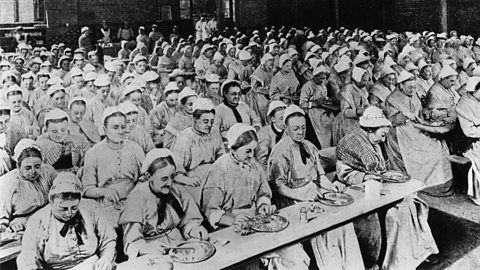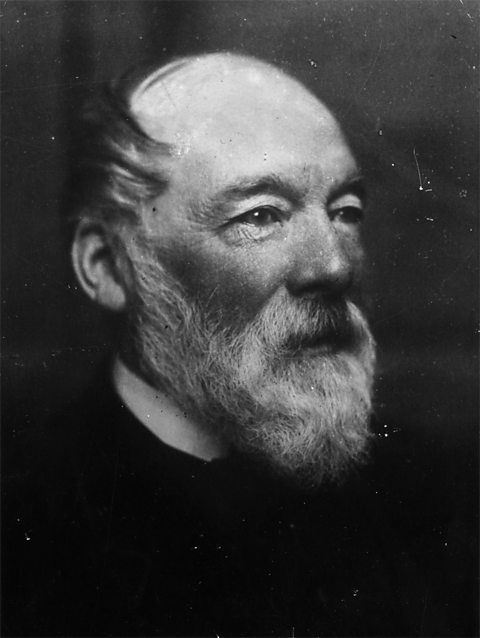Concerns over poverty
Poverty in Britain at the end of 19th century
At the start of the 20th century, there were no old age pensions, unemployment benefits, health insurance or help for children. If the main wage-earner in a family died or could not work, a whole family could be plunged into terrible poverty.
Poverty was caused by many factors in the 1800s:
- unemployment – families were not supported
- large families – many children had to be catered for from one wage
- death of main ‘bread-winner’ – no-one to bring in money
- disability/injury at work – loss of earnings through inability to work
- Illness – those off work due to illness did not receive sick pay and had the added costs of medical consultation and treatment
- old age – those too old to work received no income
- no national social security system - no protection for individuals against the worst effects of sickness and unemployment
Help for the poor in the 1800s

The Poor Law of 1834 provided two types of help.
Indoor relief
The poor were given clothes and food in the workhouse in exchange for several hours of manual labour each day.
Outdoor relief
Food and money was given to those at home, but this carried great social stigma.
Charitable assistance
In the 19th century, assistance for those in poverty often came from individual charities.
The poor received money, time and expertise from charitable Victorian people and organisations to help them deal with poverty.
Many of these charities were linked to religion. Charitable individuals often saw themselves as ‘doing God’s work’ in helping the poor.
A great deal of charities believed that the poor should be ‘educated’ to live better lives and improve themselves. The charities aimed to provide this ‘education’.
Most of these charities believed in the theory of 'self-help' and did not believe the government should intervene.
However, many of these charities were not organised on a national level. This limited their effectiveness because an individual may receive similar help from two charities at once. Meanwhile, whole sections of the country and parts of cities received no support.
Attitudes towards poverty

During the late 19th century the British government, under the Liberal party, acted according to the principle of 'laissez-faire' (leave alone).
Individuals were viewed as solely responsible for their own lives and welfare. The government did not accept responsibility for the poverty and hardship that existed among its citizens:
The accepted role of the government was very limited - to maintain law and order and to protect the country from invasion
Government involvement in social issues was unpopular as it would result in a rise in taxes.
The poor were seen by the wealthy as an unfortunate but inevitable part of society.
A popular point of view at the time was that poverty was caused by idleness, drunkenness and other such moral weaknesses on the part of the working classes.
Christian Norman Pearson believed that the poor were “made of inferior material…and cannot be improved.”
Many thought that ‘self-help’ (the theory that individuals being responsible for their own social standing and livelihood) should be promoted. This belief was promoted by Samuel Smiles, who published a book called 'Self-Help' in 1859.
Individuals were expected to get themselves out of poverty through education and hard work.
More guides on this topic
- Why Britain became more democratic, 1851–1928
- How democratic Britain became - 1867 - 1928
- Why women won greater political equality by 1928
- The effectiveness of the Liberal social welfare reforms
- Effectiveness of the Labour social welfare reforms, 1945–51
- Working conditions in Scottish industry in the 1940s